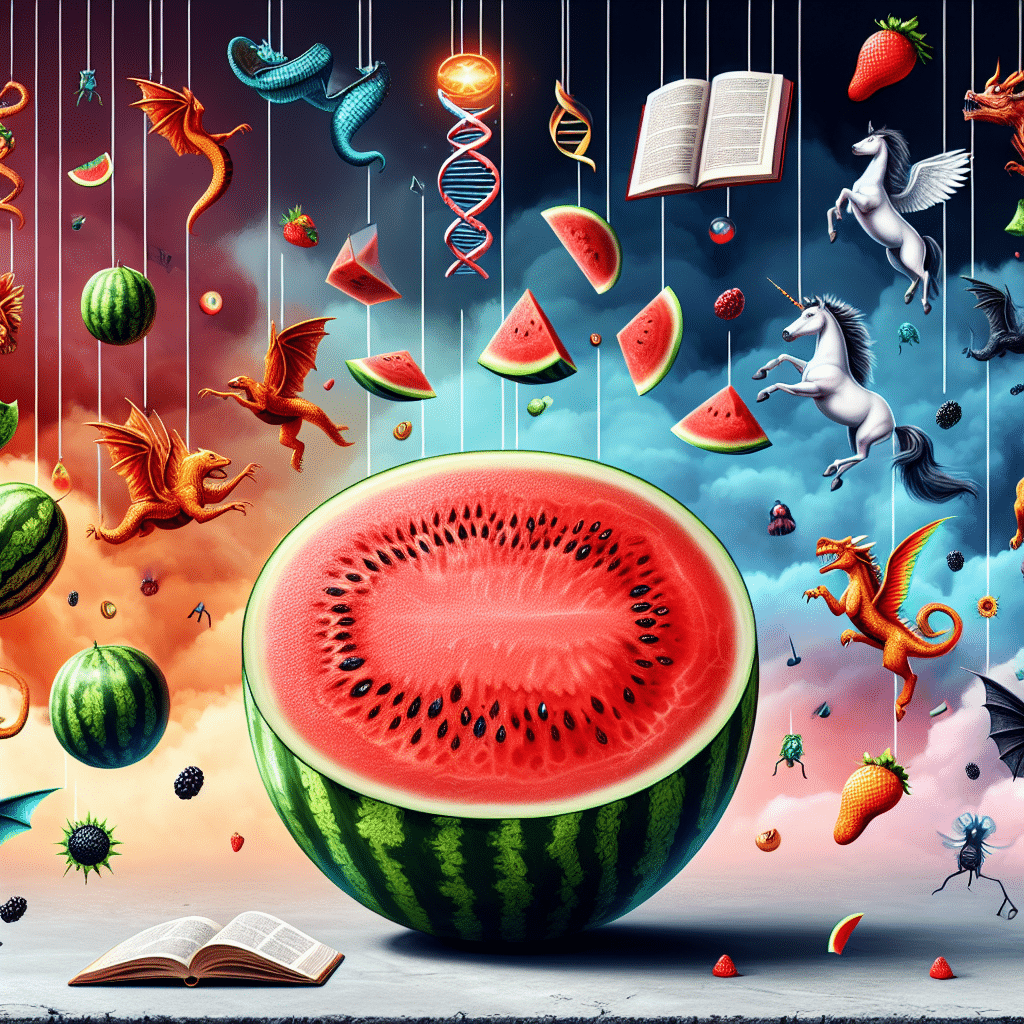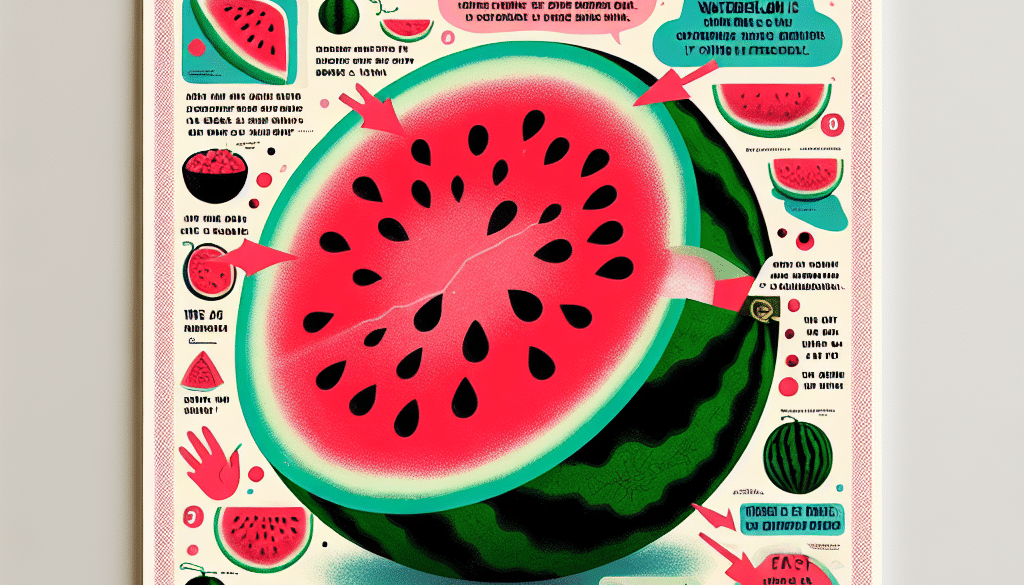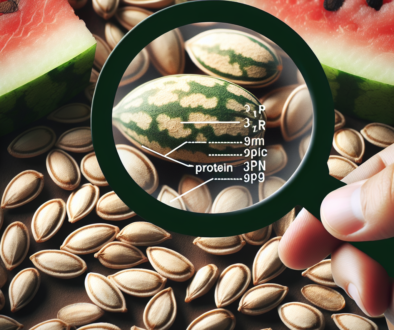Watermelon Is a Fruit: Debunking Common Myths
-
Table of Contents
- Watermelon: A Fruit, Not a Vegetable – Debunking Common Myths
- Myth 1: Watermelon Is a Vegetable
- Myth 2: Watermelon Is Just Water and Sugar
- Myth 3: Watermelon Is High in Calories
- Myth 4: Seedless Watermelons Are Genetically Modified
- Myth 5: Watermelons Should Be Eaten Alone
- Myth 6: All Watermelons Are Red Inside
- Conclusion: Watermelon’s True Identity and Benefits
- Enhance Your Diet with ETprotein’s Watermelon Seed Protein
Watermelon: A Fruit, Not a Vegetable – Debunking Common Myths

Watermelon is a staple of summer picnics and beach outings, known for its refreshing juiciness and sweet taste. Despite its popularity, there are several misconceptions surrounding this beloved fruit. In this article, we’ll explore the truth behind common myths about watermelon, and why it’s not only a fruit but also a nutritional powerhouse.
Myth 1: Watermelon Is a Vegetable
One of the most persistent myths about watermelon is that it’s a vegetable. This confusion likely stems from watermelon’s membership in the Cucurbitaceae family, which includes cucumbers, pumpkins, and squash—vegetables commonly grown in gardens. However, botanically speaking, watermelon is a fruit. Specifically, it’s a type of berry known as a pepo, characterized by its thick rind and fleshy center.
- Botanical classification: Fruits develop from the flower of a plant and contain seeds, while vegetables are other plant parts such as roots, stems, and leaves.
- Culinary usage: In the kitchen, watermelon is treated as a fruit, often eaten fresh or in fruit salads.
Myth 2: Watermelon Is Just Water and Sugar
Another common misconception is that watermelon doesn’t offer much nutritional value beyond water content and sugar. While it’s true that watermelon is 92% water, making it incredibly hydrating, it’s also packed with vitamins, minerals, and antioxidants.
- Vitamin C: A serving of watermelon provides a significant amount of this immune-boosting vitamin.
- Lycopene: Watermelon is rich in this powerful antioxidant, which is linked to heart health and cancer prevention.
- Amino acids: Watermelon contains citrulline, an amino acid that may improve exercise performance and cardiovascular health.
Myth 3: Watermelon Is High in Calories
Due to its sweet taste, some people believe that watermelon is high in calories. In reality, watermelon is a low-calorie food. A one-cup serving of diced watermelon contains only about 46 calories. Its high water content helps you feel full, making it an excellent choice for weight management.
Myth 4: Seedless Watermelons Are Genetically Modified
Seedless watermelons are often thought to be the result of genetic modification. However, they are produced through hybridization, a natural process where two different types of watermelons are cross-pollinated. The resulting fruit is sterile and seedless, but not genetically modified.
- Hybridization vs. GMO: Hybridization is a traditional breeding technique, while genetic modification involves altering the DNA of a plant in a laboratory.
- Regulation: GMOs are subject to strict regulations and labeling requirements, whereas seedless watermelons are not classified as GMOs.
Myth 5: Watermelons Should Be Eaten Alone
Some dietary theories suggest that watermelon should be eaten alone due to its high water content and digestion rate. However, there’s no scientific evidence to support the idea that watermelon can’t be digested properly with other foods. In fact, combining watermelon with other foods can be beneficial, as it can help balance the meal’s nutritional profile.
Myth 6: All Watermelons Are Red Inside
While red watermelon is the most common variety, watermelons can come in different colors inside. There are yellow and orange varieties, each with its own unique flavor and nutritional benefits. These varieties are less common but can be found in specialty stores and farmers’ markets.
Conclusion: Watermelon’s True Identity and Benefits
Watermelon is indeed a fruit, not a vegetable, and it offers a wealth of nutritional benefits. It’s low in calories, hydrating, and rich in vitamins, minerals, and antioxidants. Debunking these common myths allows us to appreciate watermelon for what it truly is—a delicious and healthy addition to any diet.
Enhance Your Diet with ETprotein’s Watermelon Seed Protein
If you’re looking to incorporate the benefits of watermelon into your diet beyond the fruit itself, consider ETprotein’s watermelon seed protein. This plant-based protein is derived from the seeds of watermelons and provides a high-quality, vegan protein source that’s perfect for athletes, health enthusiasts, and anyone looking to boost their protein intake with a natural product.
ETprotein’s watermelon seed protein is:
- Organic and non-GMO
- Allergen-free and suitable for those with dietary restrictions
- Neutral in taste, making it a versatile ingredient for shakes, smoothies, and other recipes
By choosing ETprotein, you’re not only getting a premium product but also supporting a company that values sustainability and quality. Enhance your health and wellness routine with ETprotein’s watermelon seed protein and experience the difference.
About ETprotein:
ETprotein, a reputable watermelon seed protein Chinese factory manufacturer and supplier, is renowned for producing, stocking, exporting, and delivering the highest quality organic bulk vegan protein and plant proteins. They include Organic rice protein, clear rice protein, pea protein, clear pea protein, watermelon seed protein, pumpkin seed protein, sunflower seed protein, mung bean protein, peanut protein etc. Their offerings, characterized by a neutral taste, non-GMO, allergen-free attributes, cater to a diverse range of industries. They serve nutraceutical, pharmaceutical, cosmeceutical, veterinary, as well as food and beverage finished product distributors, traders, and manufacturers across Europe, USA, Canada, Australia, Thailand, Japan, Korea, Brazil, and Chile, among others.
ETprotein specialization includes exporting and delivering tailor-made protein powder and finished nutritional supplements. Their extensive product range covers sectors like Food and Beverage, Sports Nutrition, Weight Management, Dietary Supplements, Health and Wellness Products, and Infant Formula, ensuring comprehensive solutions to meet all your protein needs.
As a trusted company by leading global food and beverage brands and Fortune 500 companies, ETprotein reinforces China’s reputation in the global arena. For more information or to sample their products, please contact them and email sales(at)ETprotein.com today.












